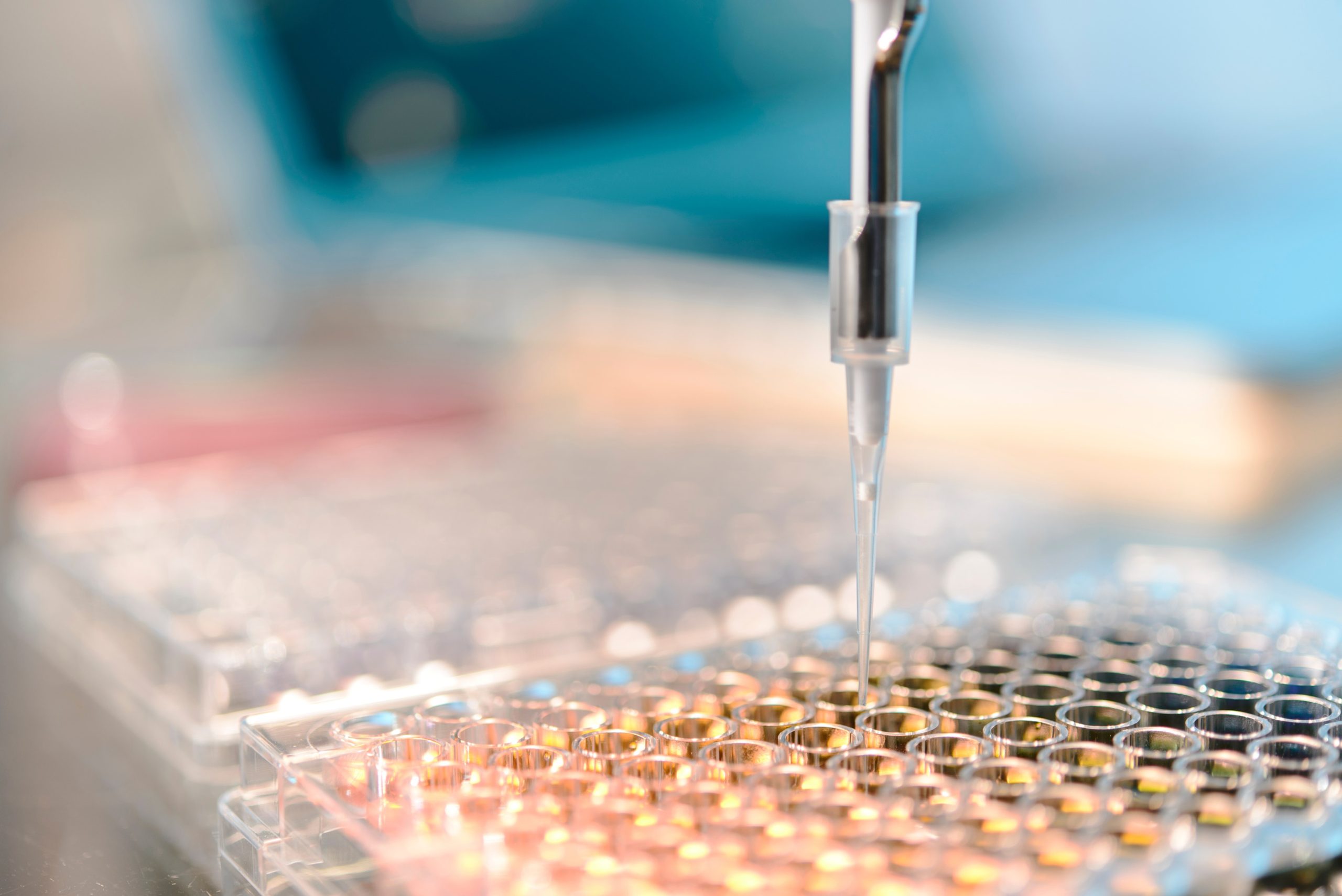
What is ELISA?
ELISA (enzyme-linked immunosorbent assay) is an immunoassay technique used to detect and measure the concentration of peptides, proteins, and antibodies in a sample. The basic principle of ELISA is that the target antigen/antibody will be immobilized on a microplate and will then form a complex with the appropriate antibody/antigen conjugate. Next, the complex will bind to the reporter enzyme and will be detected through a color change reaction.
Types of ELISAs
Based on its type, ELISA itself can be divided into several types, including:
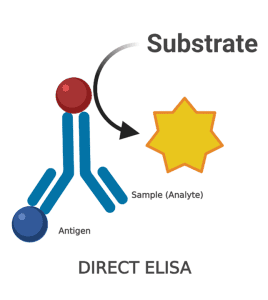 In this method, antigens are immobilized on a microplate, then incubated directly with primary antibodies that will be conjugated with enzymes that already have substrates.
In this method, antigens are immobilized on a microplate, then incubated directly with primary antibodies that will be conjugated with enzymes that already have substrates.
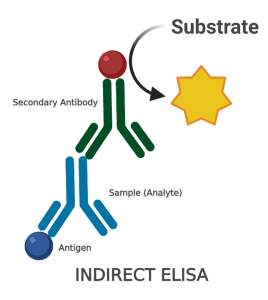 In this method, the antigen is immobilized on a microplate, then incubated using a primary antibody, and followed by a conjugated secondary antibody. This secondary antibody will bind to the primary antibody.
In this method, the antigen is immobilized on a microplate, then incubated using a primary antibody, and followed by a conjugated secondary antibody. This secondary antibody will bind to the primary antibody.
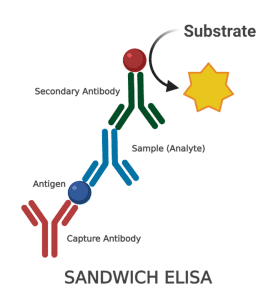 In this method, first the antibody (capture antibody) is attached to the bottom of the microplate. Next, the test sample (antigen) is pipetted into the microplate and followed by the secondary antibody.
In this method, first the antibody (capture antibody) is attached to the bottom of the microplate. Next, the test sample (antigen) is pipetted into the microplate and followed by the secondary antibody.
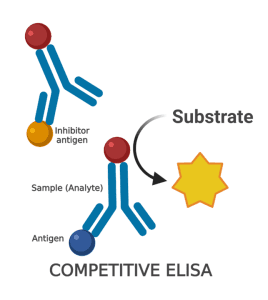 In this method, non-sample antigen is attached to the bottom of the microplate, then sample antigen and primary antibody are pipetted into the well. Then the secondary antibody that will bind to the enzyme is also pipetted into the well.
In this method, non-sample antigen is attached to the bottom of the microplate, then sample antigen and primary antibody are pipetted into the well. Then the secondary antibody that will bind to the enzyme is also pipetted into the well.
Advantages and disadvantages of using the ELISA method
Advantages
- Easy and fast working procedure.
- High specificity and sensitivity.
- Efficient, safe, and eco friendly (no need for large amounts of radioactive materials and organic solvents).
Disadvantages
- Need personnel for preparation (labor-intensive)
- Can only identify one analyte at a time (cannot multiplex)
- Reagents are temperature sensitive, so they require temperature-controlled storage.
Why Choose AVIDA BIOSCIENCE
AVIDA BIOSCIENCE is committed to providing the most advanced technology and innovative products to accelerate your research. In presenting quality ELISA Kit, AVIDA Bioscience is supported by well-known brands.
Extensive Product Range
widely used in a variety of sectors
Always up-to-date products
Ready-to-use
Swift Delivery
Featured Research Area
Featured Research Area
1. Cell Biology
2. Biopharmacy
3. Foods
4. Veterinary

